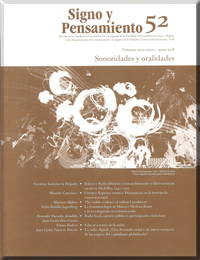Abstract
Since the end of the eighties, different manufacturers of radio broadcasting equipment, together with some governments, have been developing new digital technology in order to modernize radio broadcasting. The goal is to replace short-wave systems, AM and FM. After two decades of effort and numerous investments, various standards began to emerge and become implemented such as DAB, HD radio, and DRM. These standards came from Europe, North America, and Asia. Selection and implementation of the technology of digital radio transmission is a process that is forever more vertiginous and is developed almost behind closed doors sans the desired democratic debate, a process that takes into account only a few hegemonic groups and in which conflicts among great global companies are witnessed. Add to that supranational economic blocks that try to impose their technology and styles of the radio broadcasting industry in order to enjoy competitive advantages. The adoption of this new technology along with the respective communicative models, can have a considerable impact on the Latin American radio medium both in commercial radio and in public and educational radio. This paper seeks to identify and describe the basic characteristics of the emerging digital radio standards.This journal is registered under a Creative Commons Attribution 4.0 International Public License. Thus, this work may be reproduced, distributed, and publicly shared in digital format, as long as the names of the authors and Pontificia Universidad Javeriana are acknowledged. Others are allowed to quote, adapt, transform, auto-archive, republish, and create based on this material, for any purpose (even commercial ones), provided the authorship is duly acknowledged, a link to the original work is provided, and it is specified if changes have been made. Pontificia Universidad Javeriana does not hold the rights of published works and the authors are solely responsible for the contents of their works; they keep the moral, intellectual, privacy, and publicity rights.
Approving the intervention of the work (review, copy-editing, translation, layout) and the following outreach, are granted through an use license and not through an assignment of rights. This means the journal and Pontificia Universidad Javeriana cannot be held responsible for any ethical malpractice by the authors. As a consequence of the protection granted by the use license, the journal is not required to publish recantations or modify information already published, unless the errata stems from the editorial management process. Publishing contents in this journal does not generate royalties for contributors.


